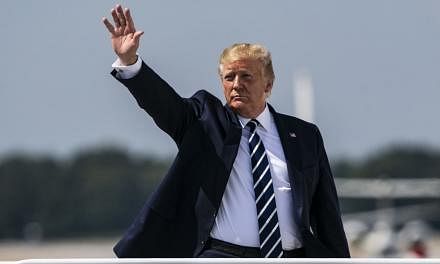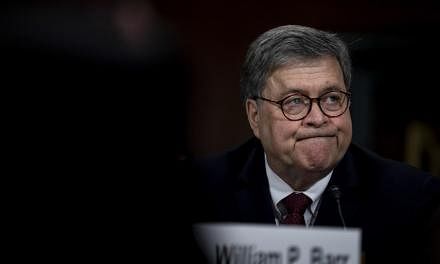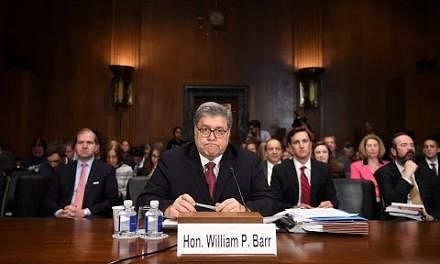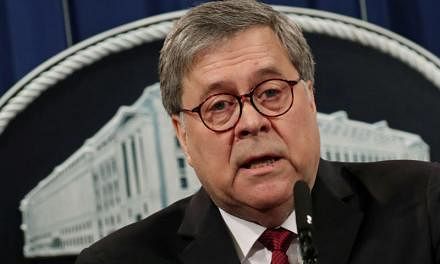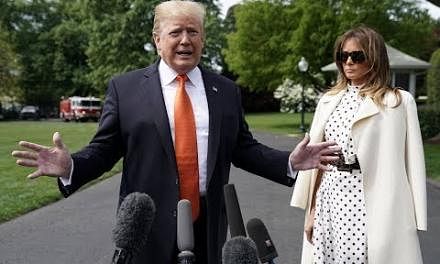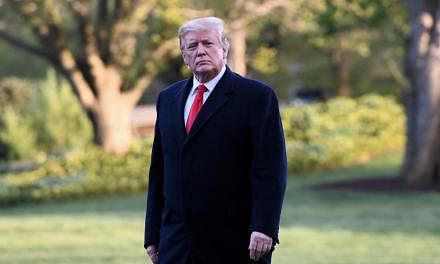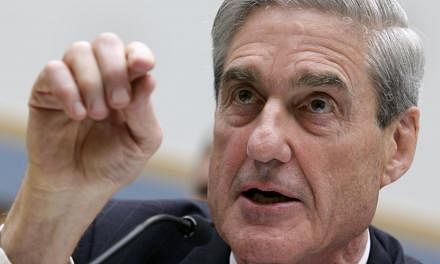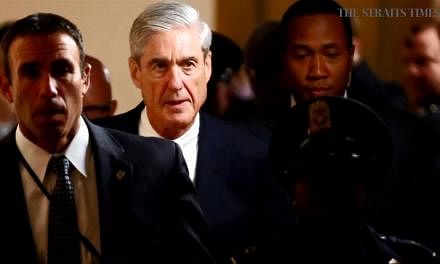WASHINGTON (NYTIMES) - Republicans on the House Intelligence Committee, apparently disregarding Justice Department warnings that their actions would be "extraordinarily reckless", voted on Monday (Jan 29) evening to release a contentious secret memorandum said to accuse the department and the FBI of misusing their authority to obtain a secret surveillance order on a former Trump campaign associate.
The vote threw fuel on an already fiery partisan conflict over the investigations into Russia's brazen meddling in the 2016 presidential election. Republicans invoked a power never before used by the secretive committee to effectively declassify the memo that they had compiled.
Democrats called the 3½-page document a dangerous effort to build a narrative to undercut the department's ongoing Russia investigation, using cherry-picked facts assembled with little or no context.
What comes next was less clear. Under the obscure House rule invoked by the committee, President Donald Trump now has five days to review the document and decide whether to try to block it from going public.
The White House has repeatedly indicated that it wants the memo out, but Mr Trump's Justice Department had been working to slow or block its release.
The memo, which was made available to all members of the House, is said to contend that officials from the two agencies were not forthcoming to a Foreign Intelligence Surveillance Court judge.
Republicans accuse the agencies of failing to disclose that the Democratic National Committee and Hillary Clinton's presidential campaign helped finance research that was used to obtain a warrant for surveillance of Carter Page, a Trump campaign adviser.
The research presented to the judge was assembled by a former British intelligence officer, Christopher Steele.
The memo is not limited to actions taken by the Obama administration, though.
The New York Times reported on Sunday that the memo reveals that Deputy Attorney-General Rod J. Rosenstein, a top Trump appointee, signed off an application to extend the surveillance of Mr Page shortly after taking office last spring. The renewal shows that the Justice Department under Mr Trump saw reason to believe that Mr Page was acting as a Russian agent.
The inclusion of Mr Rosenstein's action in the memo could expose him to a torrent of criticism from Republicans on Capitol Hill and from conservatives in the media who have seized on the surveillance to argue that the Russia investigation may have been tainted from the start. Mr Rosenstein is overseeing that investigation because Attorney-General Jeff Sessions recused himself. It was Mr Rosenstein who appointed Robert S. Mueller III as special counsel.
People familiar with the underlying application have portrayed the Republican memo as misleading in part because Mr Steele's information was insufficient to meet the standard for a FISA warrant. They said the application drew on other intelligence material that the Republican memo selectively omits. That other information remains highly sensitive, and releasing it would risk burning other sources and methods of intelligence-gathering about Russia.
There is no known precedent for the Republicans' action. Though House rules allow the Intelligence Committee to vote to disclose classified information if it is deemed to be in the public interest, the rule is not thought to have ever been used. Typically, lawmakers wishing to make public secretive information classified by the executive branch spend months, if not years, fighting with the White House and the intelligence community over what they can release.
In a letter last week to Representative Devin Nunes of California, the committee's Republican chairman, Stephen E. Boyd, an Assistant Attorney-General, said it would be "extraordinarily reckless" to release a memo drawing on classified information without official review. He said the department is "unaware of any wrongdoing related to the FISA process".
Democrats responded to the committee's actions with outrage.
"Clearly, House Republicans' desire to protect President Trump has clouded their judgment and caused them to lose sight of what's at stake: the security and integrity of our elections," said the office of Representative Nancy Pelosi of California, the Democratic leader, in a statement.

